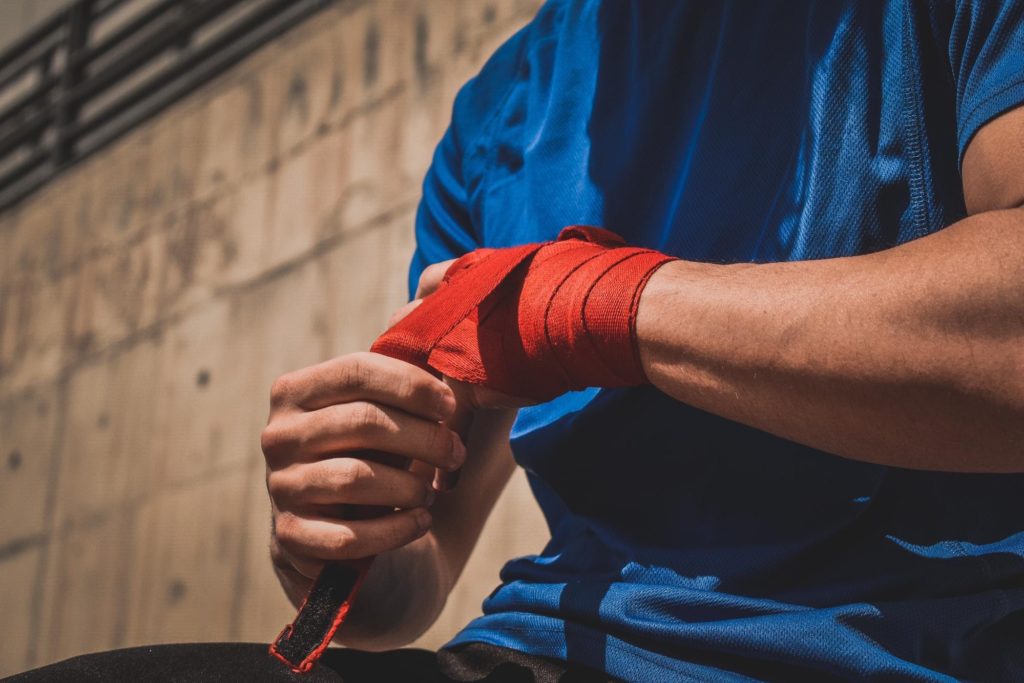3 Min Read
Athletes Mental Health: Stigmas & Misconceptions
When elite athletes experience physical health concerns, a team of health care providers, including doctors, athletic trainers, and physical therapists, are available to ensure a quick recovery. However, when professional athletes experience mental health issues, the treatment process is often vastly different. In sports, mental illness is often overlooked due to stigma and misconceptions surrounding athletes’ mental health. As a result, athletes may be left with feelings of abandonment and stress, unsure of where to turn for mental health care.
Unfortunately, many people still assume that mental health concerns are rare among professional athletes, as they are often perceived to be strong and healthy individuals. In the United States, elite athletes like Michael Phelps and Simone Biles are often idealized on media and subjected to a large fan base, contributing to the idea that they’re immune to mental health conditions. Although mental health stigma remains an ongoing issue, elite athletes are particularly vulnerable.

Mental Health Challenges among Athletes
Like the general population, athletes are at risk of developing mental disorders, including substance use disorders, post-traumatic stress disorder (PTSD), anxiety disorders, and mood disorders. Research shows that high school athletes, college athletes, and professional athletes face comparable risks of developing mental health conditions with their peers.
Especially for high-profile athletes, the stress and pressures of competing weekly may lead to chronic stress, performance anxiety, burnout, and generalized anxiety. In addition, research suggests that “hidden” head injuries, such as concussions, may increase athletes’ risk factors for developing mental health problems, including depression and PTSD. Physical health problems, bad performances, conflicts with teammates, and constantly being in the spotlight may also leave athletes vulnerable to mental health struggles.

Find a Therapist to Navigate Mental Health as an Athlete
Get personalized matchesAthletes’ Mental Health and Stigma
In the words of Dr. Thelma Dye Holmes, “Mental health has a stigma that is tied into weakness and is absolutely the antithesis of what athletes want to portray.” Consequently, athletes often feel pressured to mask or hide their mental health symptoms instead of seeking mental health care, as stigma remains the primary barrier for seeking mental health treatment.
Failing to seek proper treatment, athletes can negatively affect performance, especially in high-stakes competitions and events where it feels like they’re carrying the weight of the world on their shoulders. Sometimes, changes in athletes’ mental health can result in a poor score or performance. Other times, mental health symptoms can serve as dangerous distractions, such as when gymnasts flip through the air. In any case, athletes deserve time to sort things out, even if that means sitting out for a few games.
Ultimately “[Athletes] also have to focus on ourselves, because at the end of the day we’re human, too,” said Biles, sharing her personal story after withdrawing from the 2021 Tokyo Olympics. “So, we have to protect our mind and our body, rather than just go out there and do what the world wants us to do.”
Mental Health Resources for Athletes
For adolescent athletes and high-profile professional athletes, starting a conversation about mental health is integral to combat stigma. Some helpful mental health resources to help athletes prioritize their mental wellness include:
- Therapy. Working with a mental health provider, such as a clinical psychologist or sports psychologist, can help you gain valuable insight into your mental health, learn healthy coping mechanisms, and regain strength.
- Support groups. Support groups provide a unique opportunity to connect with other individual athletes in similar situations. The National Alliance on Mental Illness (NAMI) offers various support groups and mental health advocacy resources for individuals experiencing mental health struggles, including NAPeer, NAMI Family, NAMI Basics, and NAMI Connection.
- Social support. If you’re experiencing stress or burnout, talk to your coach, teammates, support staff, or athletic trainers. They can provide valuable mental health resources, including re-evaluating your training program or providing a referral for a mental health screening.
- Social media. Whether you’re recovering after a traumatic event or you’ve been diagnosed with obsessive-compulsive disorder (OCD), sharing your personal story and finding your own voice can help inspire younger athletes. Especially during COVID-19, when many U.S. athletes are facing loneliness and isolation, it’s important to talk openly about wellness so that we’re not continuing a destructive cycle of ignoring these issues.
- Helplines. If you’re experiencing a mental health crisis, call the National Suicide Prevention Lifeline at 1-800-273-8255 or the NAMI Helpline at 1-800-950-NAMI (6264) for immediate support.
Professional Mental Health Care for Athletes
If you’re having a hard time functioning in daily life, experiencing new mental health symptoms, or struggling with burnout, help is available. Although reaching out for professional help can feel intimidating, it’s important to remember that therapy is the first step toward regaining your confidence.
To find a therapist, reach out to a mental health professional through WithTherapy. We’ll connect you to a licensed psychologist, social worker, or counselor you feel comfortable with, regardless of your personal preferences and requirements. One of our experienced mental health professionals will help you overcome perfectionism and jumpstart your journey toward mental wellness.
Find a Therapist to Navigate Mental Health as an Athlete




